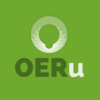Process for selecting initial courses for 2012 prototype
From WikiEducator
This is a three phase process:
|
When considering a nomination for the 2012 prototype, triangulate your decision by considering:
|
Considerations
- The process for nominating and selecting the initial courses will be guided by the principles of self-organisation. Self-organisation is a process where the structure or pattern emerges in the system without a central authority or external element imposing it through planning. Self-organisation will enable the interaction of local elements that make up the OERTen system. Consequently the organisation of the initiative is achieved in a way that is parallel (all the elements act at the same time) and distributed (no element is a central coordinator)[1]. It is the tacit knowledge of individuals and organisations which "know" what will work in their context. A transparent process provides the OERu network with the capacity to self-organise.
- Nothing precludes an anchor partner continuing development of their intended course contributions in parallel with the prototype. However, the benefits for individual anchor partners are likely to increase in proportion to the areas of overlap and agreement within the network. For example, course selections which maximize credit-transfer in the network will increase the incentives and rewards for sharing the systemic costs associated with the assembly of courses because this reduces the need for local recontextualisation of a shared OERu course.
- Designing for reuse using collaborative approaches provides the greatest opportunity for the netwrok to overcome the reusability paradox.
Tips:
- Go with the flow and trust the process (anchor partners retain decision-making autonomy)
- Consider thinking outside the box so we can collectively think further than the obvious because innovation can occur in the grey areas of overlap among existing practices. For example, don't be shy to nominate a candidate from your institution, by sharing. anchors partners will be able to "think outside the box" given their tacit knowledge of local dynamics.)
- Remember that successful innovation is creativity successfully implemented -- therefore postpone solutions which cannot reasonably be implemented within existing institutional practice.
The process and timeline
- Submit your candidates for course nominations for the 2012 prototype using the form below by the close of business on 9 December 2011.
- In parallel with your candidate nominations, please submit your ideas for the ranking criteria the OERTen should consider for shortlisting the nominations by the close of business on 9 December 2011.
- Using the ranking criteria determined above, we will use an open poll based on a rough consensus model to determine the "sense of the group" by 16 December 2011. (Note in our context the collective is the "chair" and we accept that not all institutions will agree or be able to accredit the prototype courses - this is a starting point.)
- Final discussion and decision on the prototype courses drawing on the rough consensus above by 31 December 2011.
Course nomination form
Instructions
|
References
- ↑ Wikipedia definition of self-organisation
